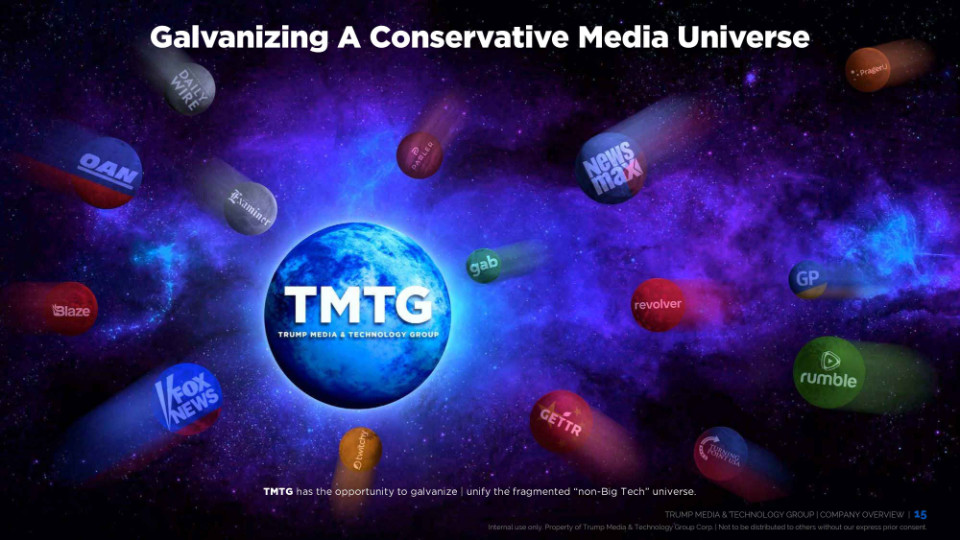After months of speculation, tribulation, and hype, former President Donald Trump launched his long-awaited social media platform — Truth Social — on Monday. The app, a shameless Twitter clone, is available for download on the Apple App Store and sits at the top of Apple’s download charts as of publication on Wednesday.
But despite all of this excitement, Truth Social remains totally unusable. Hours after the app’s Presidents’ Day launch, it suffered dozens of technical glitches, from a 13-hour outage to users who were unable to make an account, let alone receive the confirmation email that allows them to start the process of joining. Even if you were able to secure a username, it’s likely you’ve been placed on an over 300,000 person waitlist to even start posting your “truths” — Trump language for “tweets.” (To be fair, Devin Nunes, former House member and head of Trump Media & Technology Group (TMTG), told Fox News on Sunday that the app wouldn’t be “fully operational” until the end of March.)
Conservative-focused social networks are trying to build an alternative, not a replacement
Judging from the rocky launch, it’s hard to imagine Facebook and Twitter are particularly worried about the competition. But while Trump’s new app is capitalizing on grievances with the big platforms, its real goal is to supplement them rather than replace them. Like talk radio or Fox News before it, the new crop of conservative-focused social networks are trying to build an alternative, not a replacement — which makes the platform’s success both easier to reach and harder to measure.
It’s easy to think Trump is trying to replace Twitter, in part because that’s what he says himself. When the outgoing president was banned from Twitter last year, he vowed to start his own competing platform rivaling “the liberal media consortium.” That goal aligned with actions he took in office, condemning Facebook and Twitter for “censoring” conservative speech and “deplatforming” prominent Republicans online. Truth positioned itself as an alternative for aggrieved conservatives who felt their posts were unjustly taken down by Silicon Valley liberal elites. The design of Truth Social, which is nearly indistinguishable from Twitter, only drives home the point further.
:no_upscale()/cdn.vox-cdn.com/uploads/chorus_asset/file/23266079/download.png)
However, overtaking Big Tech monopolies wasn’t the only way Truth Social marketed itself to investors. A slide deck presented to investors last November described Truth as an “opportunity to galvanize / unify the fragmented ‘non-Big Tech’ universe” rather than simply competing with Facebook and Twitter for market share.
It’s hard to believe Truth will ever convince a hardened Twitter user to deactivate their account, especially when the platform functions nearly the same as its assumed competitor. But it’s easy to see why a longtime Trump supporter would make an account. For them, Truth is just an addition to the Facebook groups, Discord chats, Gettr communities, and subreddits they’re already a part of. In this sense, it’s similar to talk radio, which didn’t replace traditional pop music programming but carved out a niche alongside it.
For competing companies in the alternative social media ecosystem, a successful platform may not be one that replaces Twitter but sets the standard for the community countering it. “What Truth might do, or Gettr, is create a pretense for the rules on this side of the internet, as opposed to the opposite stance, which is pushing back on the rules set by the dominant platforms,” Jamie Cohen, digital media expert, told The Verge.
“The more the merrier, right?”
This also explains why the new crop of right-leaning platforms doesn’t seem too worried about internal competition. At Turning Point USA’s Americafest conference last December, Kaelan Dorr, Gettr’s head of marketing and global engagement, answered a question about Truth as their competitor, especially since Jason Miller, the platform’s CEO, used to run Trump’s presidential campaigns. “The more, the merrier, right?” Dorr said. “There’s absolutely a world in which we can all coexist. It shouldn’t be that there’s only one warrior who’s going to stand up against this behemoth that is Big Tech.”
Speaking to The Verge on Tuesday, Ebony Bowden, Gettr’s global communications director, said that Gettr has seen thousands of new signups since Truth rolled out. “What we’re seeing now is this fracturing of the way that people get their information,” Bowden told me. “When we say that we believe that President Trump entering the space is a good thing, and it helps all of us grow, we truly believe that.”
Gettr, like other alternative social media platforms, is already making space for a Truth takeover. In an interview with The New Yorker last month, Miller said that Gettr was “moving much more into a financial-services competitor.” Trump, he said, was “moving more toward being the entertainment baron, so to speak.”
Even if Truth Social’s userbase continues to grow, it’s unclear how the platform will monetize itself to stay afloat. “Conservative media has an incredibly old demographic,” Brian Rosenwald, author of Talk Radio’s America, told The Verge on Tuesday. “It’s not good for advertising, and obviously, they have a real problem coming when your audience is 70 years old on average and not going to be around forever.”
